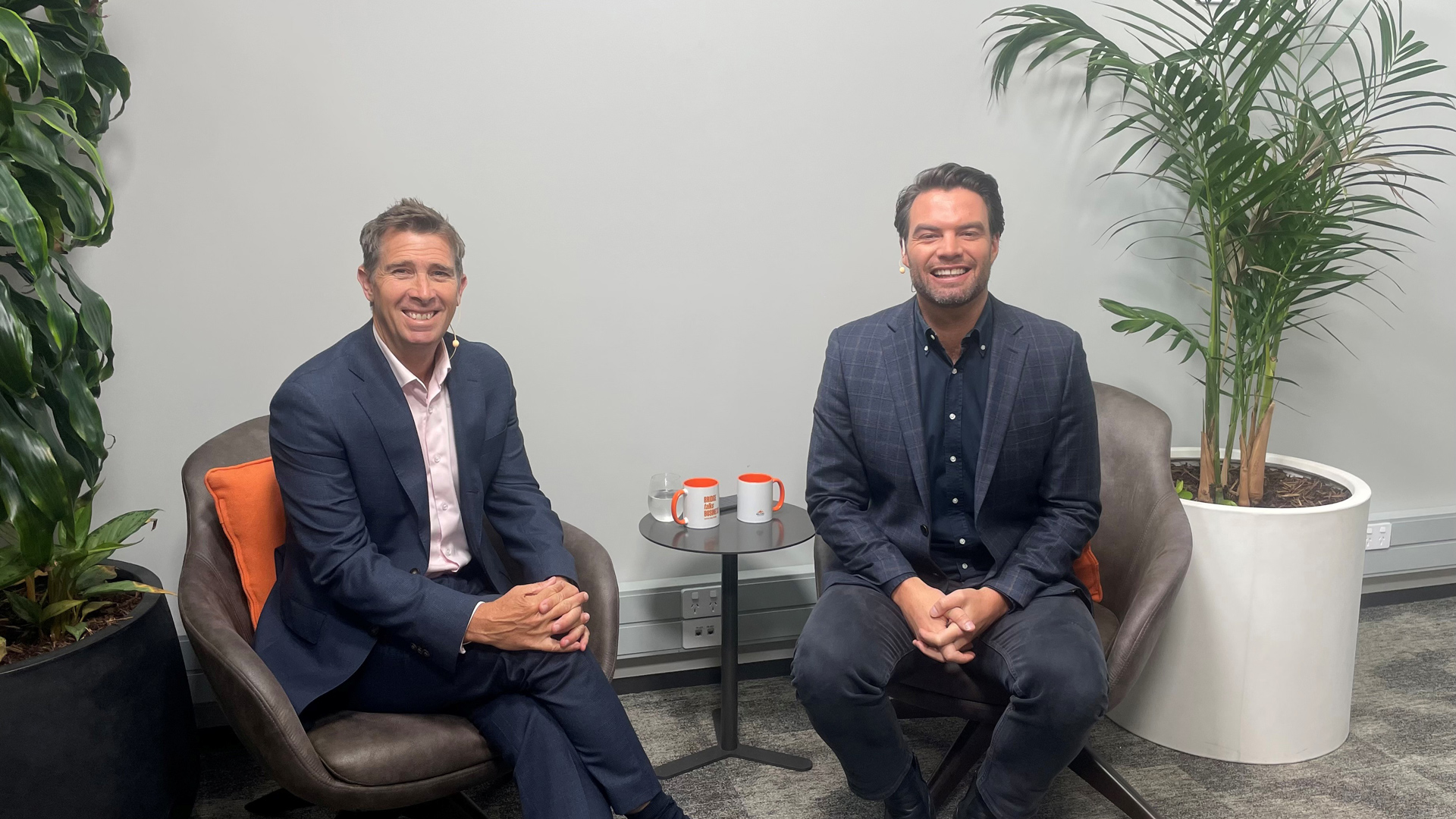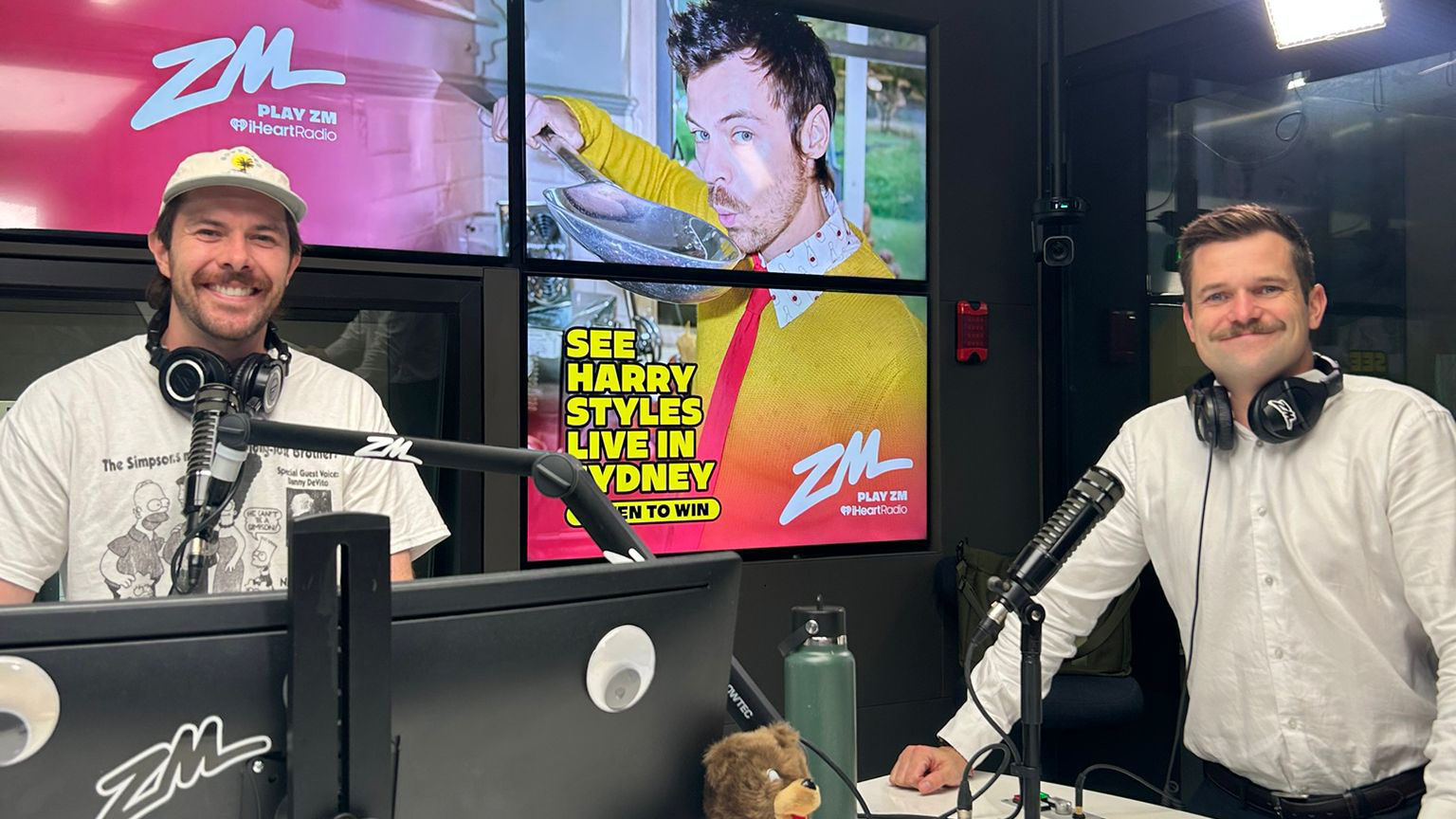Massey University’s annual Retirement Expenditure Guidelines highlight the primary drivers of rising costs for retirees, and unpacks two different lifestyles depending on savings and weekly spend. Milford Senior KiwiSaver Financial Adviser, Liam Robertson, breaks down the research with Ryan Bridge and discusses what you can do to move from a “no frills” lifestyle to a “choices” lifestyle in retirement.
Listen.
Click here to download the MP3 file or listen to the podcast on your favourite platform:
Read.
Bridge talks Business: 17 June 2025
Episode Transcript
Ryan Bridge
Kia ora and welcome to Episode 37 of Bridge talks Business with Milford. This week, the great retirement income gap. How much do you need to get by versus what are you’re going to get from superannuation? If there is a gap between what you need or what you want in retirement and what you’re likely to get, we’ve got some tips on how to bridge that gap. Remember, the earlier you plan, the better off you’ll be. But first, here’s your top five business bits from the past seven days.
- Share markets have calmed after Middle East tensions saw a sell off and a spike in the price of oil. Share markets recovered their losses incurred at the end of last week by Monday. Share investors have learned to fade the geopolitical risk into the background
- US inflation data surprised on the softer side last week and showed minimal impact from the tariffs, however, tariff impacts are only likely to be seen over the coming months. So, still too early to say whether it’s a risk to higher inflation and whether that’s past.
- The UK labour market has weakened recently, increasing the likelihood that the Bank of England will cut rates further. They meet this week, but at this stage, no cut is expected by investors.
- In New Zealand, economic data has been softening. Consumer spending remains in the doldrums up only 1% year-over-year. Meanwhile, business surveys showing manufacturing and services confidence, both taking a surprise lower lurch in the most recent readings.
- This week, the focus will be on the US Federal Reserve meeting. No rate cut expected, but watch for Chairman Powell characterising the risks around tariffs and the impact on inflation and growth.
Ryan Bridge
Time for our feature interview this week. And we’re talking about retirement, how much you need to get by in retirement, how much you’ll get from NZ Super, providing all things remain the same and you’ll get it at 65. What that gap is and what you can do to try and fill that gap. Remember, knowledge is power and planning ahead is key. Joining us this morning once again is Liam Robertson, Senior KiwiSaver Financial Adviser at Milford. Just a note, this segment is informational only and should not be considered financial advice. Liam, welcome back.
Liam Robertston
Gidday, good to be back so soon.
Ryan Bridge
Good to have you back. Now, since we last spoke, I’ve saved an additional [0] towards my retirement.
Liam Robertston
I’m sure it’s a little more than that, mate.
Ryan Bridge
And now I’ve been trying and I’ve been thinking about our conversation, because we were talking about how much do people need to save when they’re thinking about retirement? Do we know like a magical figure?
Liam Robertston
It’s the million-dollar question, I suppose, and that’s not necessarily the answer. A million dollars does get thrown around sometimes. But look, it comes down to a few factors. I guess the first is what sort of lifestyle are you aspiring to in retirement? Is it going on overseas holidays all the time or are you perhaps more of a homebody and quite content fishing and golfing close to home? Those two different lifestyles will have quite different expenses attached to them. You also need to consider how long you intend to work for. Many people these days work beyond the age of 65 and the later you retire, the less you may need to have saved up. But that could depend on what kind of role you’re in. My brother-in-law’s a builder and I know for sure he doesn’t want to be working post-65. It’s very hard on the body. You’ve also got to have a think about, and this is a bit trickier, but what’s your life expectancy? There’s statistics out there and you might be blessed with longevity. And so you may have quite a long time to fund when you stop working. And then I think the other thing is, do you plan to have any sources of income when you do retire? So, you might decide to use part of your home as an Airbnb, for example, you might decide to work part-time for some length of time after 65. So, all of those things come into it, but it all boils down to having a plan. Without a plan, you can’t get anywhere.
Ryan Bridge
So, obviously it’s different for different people, but we’ve got New Zealand super at the moment, you get that when you’re 65, at least that’s the current age of eligibility – that it might change. It might go up to 67 like the rest of the world. But let’s assume at 65, do we know on average whether most people, that would be enough for them to live on or are we all pretty much gonna need more than that?
Liam Robertston
Yeah, well, New Zealand superannuation is a really crucial part of the jigsaw. I often explain retirement to my clients as a bit like a jigsaw puzzle, and there’s a few different moving parts. New Zealand superannuation, I know you’ve got Jane Wrightson, the Retirement Commissioner coming in next month. So, she’ll do that part a lot more justice than I can. But to answer your question, yes, for most people, they will need to bridge a gap beyond what New Zealand super can fund in retirement. A common rule of thumb out there is that you need about 70% of your pre-retirement income to maintain your lifestyle post-retirement. And that’s assuming that you’ve got a mortgage-free home, because typically the mortgage is about a third of your income. So, if we think about someone earning perhaps an average salary of $75,000 a year, they would take home about $1,100 a week, which is 70% of that is about $770. Now the pension for someone living alone is $540 a week. And if you’re living with someone else, it’s about $415. So you can see, based on a $75,000 salary, there’s actually quite a gap to be bridged.
Ryan Bridge
Some of the numbers that we’re talking about today have come from Massey University. They do this awesome research into how much you need based on whether you want a pimped-out lifestyle with all the bells and whistles, or a more frugal lifestyle on superannuation, right? Are these numbers we can all access?
Liam Robertston
Yeah, Massey University, they publish their report every year, you can jump on their website and view it. And it’s a great report because it breaks down not only the number they think you need, but it breaks it down to a household budget. So, you can compare it with what you’re spending or perhaps what you expect to spend when you retire. And you’re right, they break it down to two lifestyles, no frills and that’s very much – well, the clue is in the name. It’s really just bare basics, keeping some food on the table, and the house heated and that sort of thing through winter. And then you’ve got a choices lifestyle, which is perhaps a more aspirational sort of lifestyle – meals out, the odd holiday here and there. And what they think you need is for a couple living together in a metropolitan area, they think you need $120,000 saved at 65 to live what they would call no frills. If you want to live a choices lifestyle, then they do think you need about 1.14 million. So, it’s a massive difference.
Ryan Bridge
And also there’s heaps of stuff these days that people don’t think about, but we’ve had this huge brain drain to Australia of young people moving there. All of their parents who will retire one day will want to go and visit them and see the grandkids, and those flights are gonna cost money. For that expensive lifestyle or retirement, for how long do you need to save? What do I need to do now to make sure that I’m gonna get that?
Liam Robertston
Yeah, well, the sooner you start, the better. What people need to think about, is often retirement’s thought about as ‘what are you retiring from’? People get sick of work and they wanna hang up the tools. And they’re trying to get away from this work grind that they’ve been in for most of their lives. But what I would encourage people to think about is ‘what are you retiring to’? You’re gonna have all this time to do the things you’ve always wanted to do. And family time’s probably a big one of those things. So, I’d encourage people to start planning and saving sooner rather than later. Massey ran the data and to get to that 1.14 million at 65, if you’re a 25-year-old couple and you saved $358 a week, they’d expect you to get there. But if you waited until you were 50, it’s more like $1,300 a week that you need to save to get there. So, it just shows you that’s the power of compounding over time.
Ryan Bridge
Is that just saving and putting in the bank – that’s not investing?
Liam Robertston
It’s investing in a balanced fund. That’s the assumption. And I don’t want that to scare anyone out there.
Ryan Bridge
Well, I’m scared.
Liam Robertston
Well, you’re not 25 anymore, but not quite 50. So, look, it’s meant as a basis for a plan, but everyone’s numbers are different. So, they’re not saying that you have to get that number to have a retirement you’ll enjoy. It’s just meant as a starting point for when you do sit down and do your own numbers.
Ryan Bridge
If I want to do my own numbers, how do I do it? How do I even start to think about that?
Liam Robertston
Yeah, well, I think the best place to start is to look at your current household budget and imagine how that might change when you retire. So, you might have perhaps no mortgage. You might have lower transport expenses if you’re not commuting to the office or job site. So, figure out what expenses you’d like, and then that will determine what income you would need every week, for example, in retirement, and then work backwards to now. At Milford, we have a really great digital advice tool that focuses around our investment funds. And when you step into that tool – it’s free to use, you don’t have to be a Milford client – when you step into the tool, you can set a goal called future income. And so, you might’ve decided that you need $1,000 a week from the age of 65 out to the age of 85, for example. It will tell you exactly what you need to start saving now in order to have an investment capable of paying you that $1,000 a week from 65.
Ryan Bridge
Brilliant. As always, talking to you, Liam, I feel like I’ve come away a little bit smarter. What are the three key takeaways that you want people to get from this conversation?
Liam Robertston
Yeah, look, I think those would be, one, have a plan. Sit down either if you live alone with yourself, or with your significant other, and actually have a plan about what you are trying to get to. Then I would encourage everyone to use our tool because it’s really easy. It takes five, 10 minutes max. And that’ll actually spit you out with a number that you need to be saving now. And thirdly, take action. Because you can plan, plan, plan, plan, but if you don’t take action, nothing will happen. And lastly, to help people get that little bit closer to retirement, I just remind them all that they’ve got until the 30 June to make sure they qualify for the full KiwiSaver government contribution.
Ryan Bridge
Yes, because it’s, well, not disappearing completely, but it’s halving and being means tested.
Liam Robertston
Yeah, that’s right. It’s going from $521 to about $260. And anyone who earns more than $180,000 will no longer be eligible. Now last year, more than $500 million was left on the table by people who didn’t get $1,043 into KiwiSaver by 30 June. So, if you’re watching or listening, don’t be one of those statistics.
Ryan Bridge
No, go out there and get it. And by 30 June, that’s the date. Liam, good to have you back on the show.
Liam Robertston
Thanks, mate. Cheers.
Ryan Bridge
That was Liam Robertson, who’s a Senior KiwiSaver Financial Adviser at Milford. Thank you so much for listening or watching the podcast. However you like to consume it. Don’t forget you can like, follow, subscribe, and you can rate the podcast as well. We would love you to do that. And Jane Wrightson, who’s the Retirement Commissioner, will be with us next month. Until next week, have a great one.
Missed previous episode? Don’t worry! Click here to catch up now.


